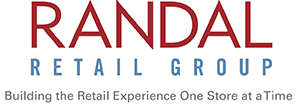
The Financial Impact of Generosity
Corporate generosity has long been a part of business plans and mission statements. What’s changing? The target market. Including generosity as a part of the business plan is no longer a feel-good, brand-image lifter. It’s a necessity. Christian Davies, Executive Creative Director of Americas, Fitch, received a standing ovation for his closing keynote speech, “Generous Brands 2.0: Retail’s
Ongoing Journey Toward the Greater Good,” given at the International Retail Design Conference. The speech provided a business case for why brand generosity is essential, including several examples.
Why should retailers care about social well-being? Because today’s shoppers, and the shoppers of the future, care. According to Davies, customers are forming “deep and resonant emotional bonds with brands and businesses that align with [their] beliefs and rewarding them not just with dollars but with loyalty.”
Generational stats and beliefs:
Generation X:
- Integrity, authenticity, and action.
- Focused on undoing the mistakes of previous generations
- Reward companies that align with their beliefs.
Generation Y:
- No longer the kids in your store.
- 47% are parents.
- Care about serving a higher purpose.
- 78% recommend a company seen as a good citizen, 74% are proud to be associated with that company, and 71% are loyal to such a business.
Generation Z:
- Today’s 14 to 19-year-olds
- The most socially responsible in history.
- 2020 made up 40% of shoppers in the US.
- Described by Davies as “educated, industrious, collaborative, and eager to build a better planet.”
These younger generations do not expect the government to be effective change-makers and believe business can help change the world. They focus on close-to-home, achievable goals and want companies to do the same. They believe that “action trumps purpose,” so while your mission statement should address charitable efforts, your target market will not be influenced unless your behavior matches your mission.
Davies describes many businesses that are successfully creating generous brands, including London-based Marks & Spencer, Panera, Timberland, Walgreens, Luxottica, and CVS. These companies address various issues, including job placement, vision care, customer health, environmental issues, and energy.
Retailers must try to balance generosity with the need of a business to be profitable. Without profits, the business cannot continue to run and will be of no help to its owners and team, let alone the community and the world.
Being A Generous Brand Creates Profits
- The brand develops an emotional connection with Generation X, Y, and Z shoppers who make their purchase decisions based on a company’s social choices and use social media to convince their community to share their vision and support their causes.
- By creating a tight-knit bond with the staff, encourages loyalty and reduces turnover.
- Being generous can greatly impact brand differentiation, which increases customer memory and the strength of the brand.
Davies also provides examples of companies who have successfully balanced charitable behaviors with financial responsibility:
- CVS appeared on the Fortune 500 Top 10 (joining Walmart as the only other traditional retailer on the list) after implementing a plan to offset the 2.4 million dollar loss in sales incurred by the decision to stop selling tobacco products.
- Panera Cares proved financially profitable.
- Marks & Spencer reports that they save more money from their Plan A social responsibility plan than they spend on it.
Including social responsibility as a part of the business plan for retailers over the next few years is no longer just an option that feels good; it is not only essential for business success but long term brand sustainability.

